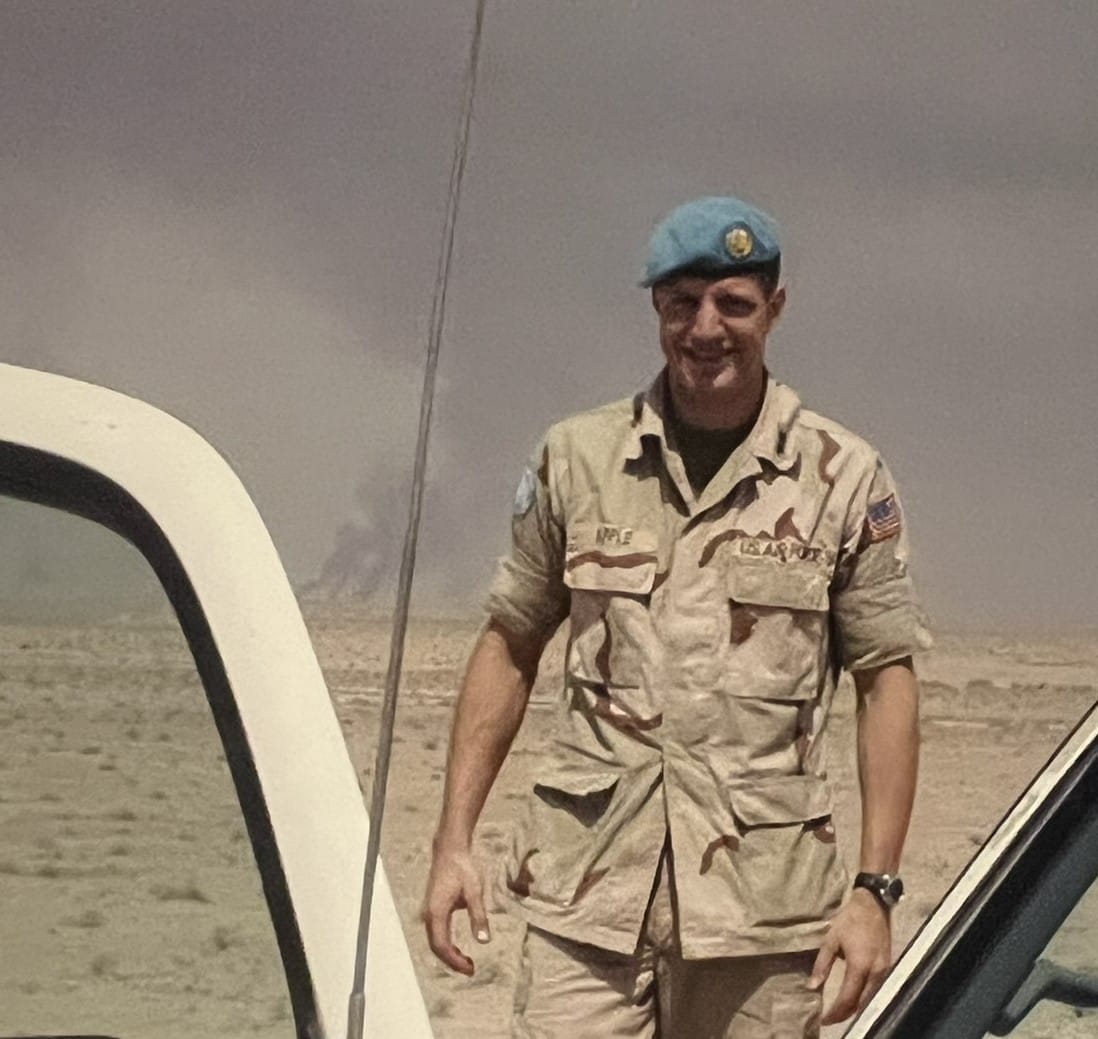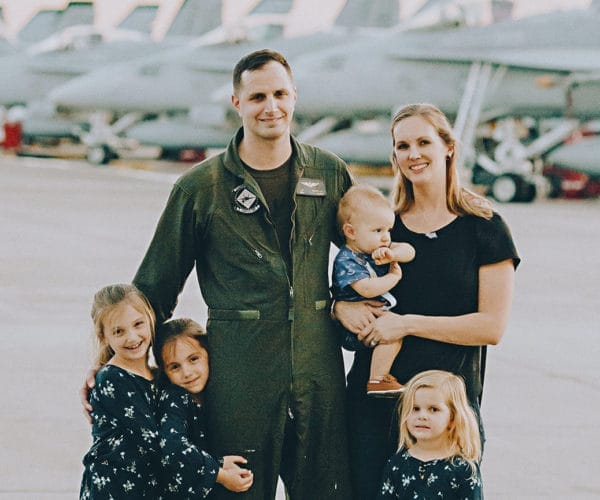Ben Apple G05 WG05 was anticipating an unusual hurdle in completing his application for Wharton’s MBA program: The application needed to be submitted online. “But I’m going to a place with no internet,” he remembers telling his admissions advisor.

Ben Apple G05 WG05 at the United Nations’s UNIKOM headquarters in Umm Qasr, Iraq in 2003.
In the wake of that conversation, Apple’s advisor was able to accommodate him while he was deployed with the United Nations as an officer in the U.S. Air Force on the border of Kuwait and Iraq, even setting him up for an interview with Mohammed Alshaya WG84 in Kuwait City.
Apple admits that moving to Philadelphia was a bit of a culture shock. While some of his new classmates had spent the previous couple of years working in offices, he had been patrolling the desert. An important part of his mission was maintaining peace in the vicinity of a large oil field near the border of Kuwait and Iraq. “There’s this environmental disregard that we don’t think of, as Americans fueling our cars,” says Apple. “It wasn’t until I had this exposure that I could see the rest of the world.”

Apple sets up the ECC’s Methane Emission Control System in Colorado in 2023.
Apple combined his drive for improving the environment with his Wharton education in the carbon market. Now, as president of the Environmental Commodities Corporation, he leads the organization’s efforts to offset carbon emissions of companies by generating and supplying carbon credits. It works like this: When companies must reduce emissions by more than what is feasible, they can purchase carbon credits that are each worth one metric ton of greenhouse gas emissions reduced or removed from the atmosphere. In addition to generating these credits, the ECC also designs new technologies to help companies lower emissions, including its Methane Emission Control System, which captures and destroys methane emitted by active underground mines.

Chris Robinson WG19 and his family. The Robinsons welcomed their fourth child one month before Chris started the Executive MBA program.
Another veteran alumnus, Chris Robinson WG19 — a former fighter pilot in the Marine Corps — is helping companies maximize their sustainability efforts through his software firm, Clearyst. It wasn’t until his Investment Management class, which he attended while working in M&A investment banking at Goldman Sachs, that ESG clicked as a potential career path. “When I saw sustainability taking off as an industry, I saw it as a way to help businesses do the right thing,” says Robinson, who is engaging his company with the School through the Wharton ESG Integration Projects. The new initiative offers students the opportunity to work with organizations on real-world ESG projects. One current project involves a team of five Penn graduate students analyzing industry trends for Clearyst.
Fellow former Marine Charles McCartney WG19 finds himself regularly applying skills from his time as a platoon commander in his leadership role at SPAN, a maker of smart electrical panels.
“You’re expected to make decisions quickly, and it’s established in advance that you’re not going to have all the information you want or need,” says McCartney. “Something I learned in the Marine Corps that stuck with me is pulling in insights from other people and not being afraid to get perspectives that you might not agree with before you make a decision.”
McCartney sees dual benefits to SPAN’s eco-friendly panels, which provide detailed energy usage information to homeowners. “Not only are we doing something for our clients, we’re doing something that has external benefits beyond that,” he says. “That sense of purpose is what has kept me in this space.”
As he did in his time in the military, McCartney has found himself working with people from all walks of life. When he launched SPAN’s nationwide installer program earlier this year, he had to find a way to make the company stand out for HVAC, solar, and electrical contractors. “That HVAC contractor is having to tell the homeowner, ‘Hey, you may have to upgrade your panel to support the electrical demands from this HVAC system or heat-pump system,’” says McCartney. “Our product allows that upgrade to be done faster and more easily without putting additional strain on the grid.”
As for the characteristics that help veterans succeed in the sector, Clearyst’s Robinson points to adaptability as an important one. “If you’re thinking about sustainability the right way, it’s about expanding how you think about your impact and how you create value,” he says. “If you just open that horizon, it becomes clearer how sustainability affects your business directly. The thinking turns from, ‘If I do one thing today, how does it impact me tomorrow?’ to more long-term thinking.”

























